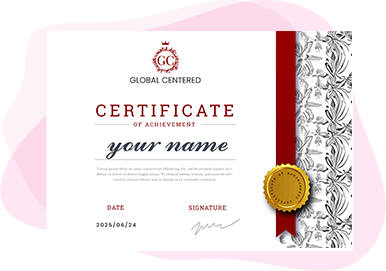GMEDTC-Exploration Drilling Techniques and Core Logging 01
Mar/2025
English
A course by
Description
Introduction
This course provides a fundamental understanding of exploration drilling techniques and core logging used in mineral exploration. Participants will learn the different drilling methods, their applications, and how to log core samples to assess phosphate, gold, and bauxite deposits. The training emphasizes basic drilling operations, sample handling, and geological interpretation of drill cores.
Date
Day | Time | Price | Country |
|---|---|---|---|
Mon – Wed | 8:00 – 10:00 | $5/hrs | Turkey |
Tue – Thu | 18:00 – 19:00 | $5/hrs | Turkey |
Wed – Fri | 20:00 – 21:00 | $5/hrs | Turkey |
Sat – Sun | 18:00 – 19:00 20:00 – 21:00 | $8/hrs | Turkey |
This Training Course Will Highlight
- Types of drilling methods used in mineral exploration.
- Core logging fundamentals and geological descriptions.
- Drill hole planning and execution in exploration projects.
- Sample collection, handling, and storage procedures.
- Environmental and safety considerations in drilling.
Objectives
- Understand the fundamentals of exploration drilling and core logging.
- Learn the different drilling techniques and their applications.
- Gain knowledge of core logging procedures and lithological descriptions.
- Develop an understanding of sampling protocols and QA/QC in drilling.
- Recognize the role of drilling data in resource estimation.
Training Methodology
- Instructor-led lectures on drilling fundamentals.
- Practical core logging demonstrations.
- Hands-on exercises in drill core sample handling.
- Discussion of real-world drilling operations in phosphate, gold, and bauxite deposits.
- Field-based problem-solving case studies.
- Case Study: Drilling program for a phosphate or gold exploration project.
Organizational Impact
- Enhances efficiency in mineral exploration programs.
- Improves drilling success rates and cost-effectiveness.
- Strengthens technical understanding of exploration drilling workflows.
- Supports better core logging and data collection practices.
- Reduces exploration risks by improving drill program planning.
Personal Impact
- Develops fundamental skills in core logging and sample analysis.
- Improves knowledge of drill rig operations and drilling techniques.
- Strengthens understanding of geological structures from core samples.
- Expands career opportunities in mineral exploration and resource geology.
- Builds confidence in drill hole planning and geological interpretation.
Who Should Attend?
- Entry-level geologists and drilling supervisors.
- Junior exploration staff in mining companies.
- Drilling technicians and core logging assistants.
- Government mining and geological survey personnel.
- Undergraduate geology and mining students.
- Environmental specialists involved in drilling impact assessments.
- Technical staff in geological survey organizations.
Course Outline
Day 1
Introduction to Exploration Drilling Methods- Purpose of drilling in mineral exploration – from prospecting to resource estimation.
- Overview of drilling methods – rotary, diamond core, reverse circulation (RC), and percussion drilling.
- Applications of drilling techniques in phosphate, gold, and bauxite exploration.
- Drill rig components and drilling equipment.
- Selection criteria for drilling methods based on geological conditions.
- Choosing the best drilling method for gold exploration.
Day 2
Drill Hole Planning and Execution- Drill hole design and planning considerations.
- Collar positioning and downhole surveying techniques.
- Drill rig mobilization and site preparation.
- Drilling operations and troubleshooting common drilling problems.
- Drilling cost estimation and budgeting for exploration programs.
- Drill program design for a bauxite exploration project.
Day 3
Core Logging and Lithological Descriptions- Handling and storage of drill core samples.
- Core logging techniques – lithology, alteration, and structure descriptions.
- Recording rock properties and geotechnical logging.
- Sampling procedures for geochemical analysis.
- Understanding drill core recovery and RQD (Rock Quality Designation).
Day 4
Sample Preparation and QA/QC Procedures- Core cutting and sample preparation for laboratory analysis.
- Quality control measures – duplicate samples, blanks, and standards.
- Geochemical and assay laboratory procedures.
- Interpreting drill core assay results.
- Common errors in sampling and ways to minimize them.
- QA/QC program for a phosphate exploration project.
Day 5
Data Integration and Drilling Safety Considerations- Using drilling data for resource estimation and geological modeling.
- Integrating drill hole data with geophysical and geochemical surveys.
- Reporting drilling results – JORC, NI 43-101, and other standards.
- Drilling safety procedures and risk management.
- Environmental considerations in drilling programs.
Cancellation policy
no refund is accepted
Certificate


Free
Skill level Beginner
100% positive reviews
Language: English
Assessments: Self
Step Into a World of Knowledge and Growth
Imagine a place where learning is not just about theory
Courses you might be interested in
Introduction This advanced-level training program is designed for senior geologists, drilling engineers, and resource geologists who seek to enhance their expertise in high-resolution core logging, advanced drilling methods, geotechnical data...
-
0 Lessons
Free
Introduction This intermediate course builds upon fundamental drilling knowledge, focusing on advanced drilling methods, core logging techniques, and data interpretation. Participants will gain practical insights into drill core analysis, QA/QC...
-
0 Lessons
Free
Free

